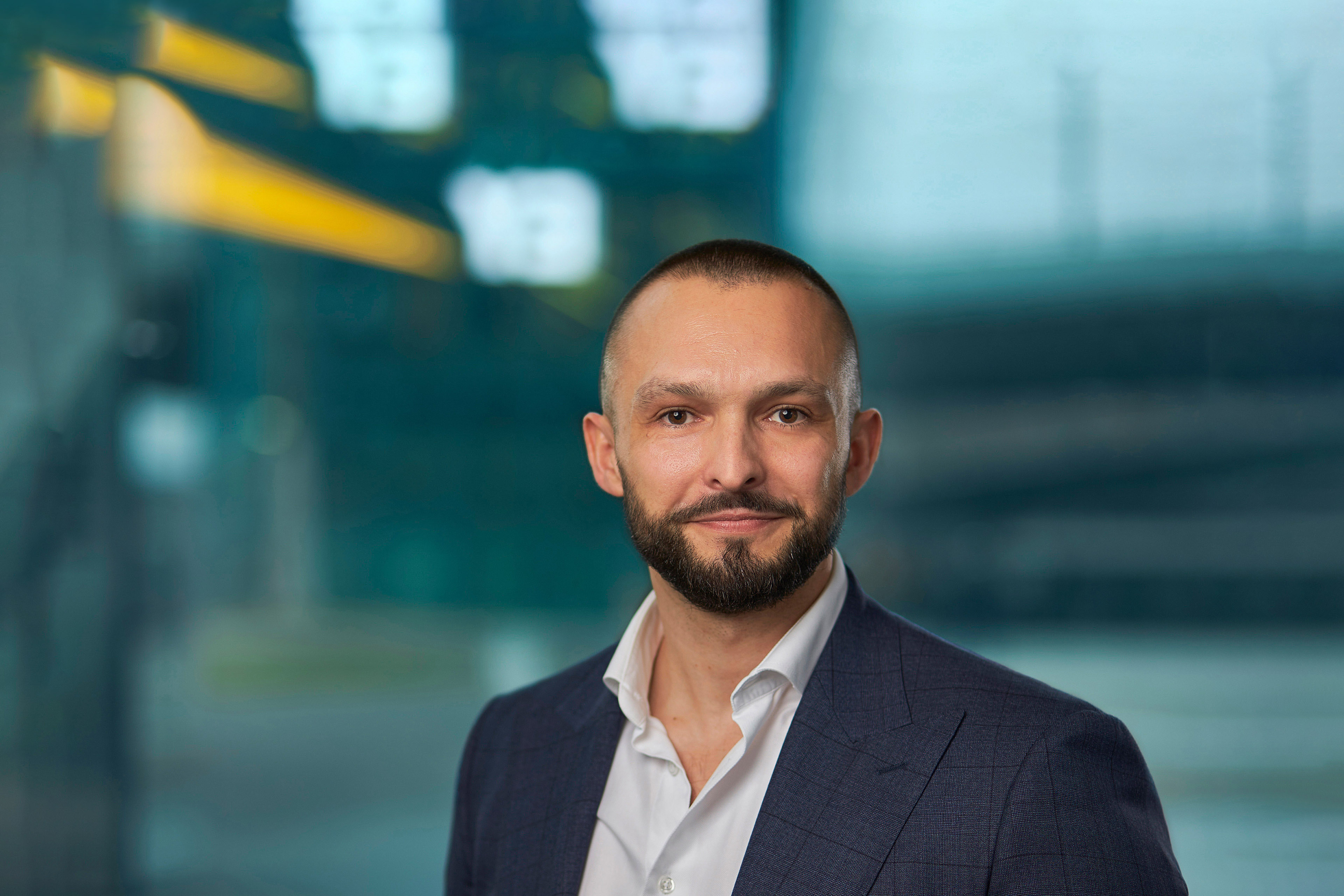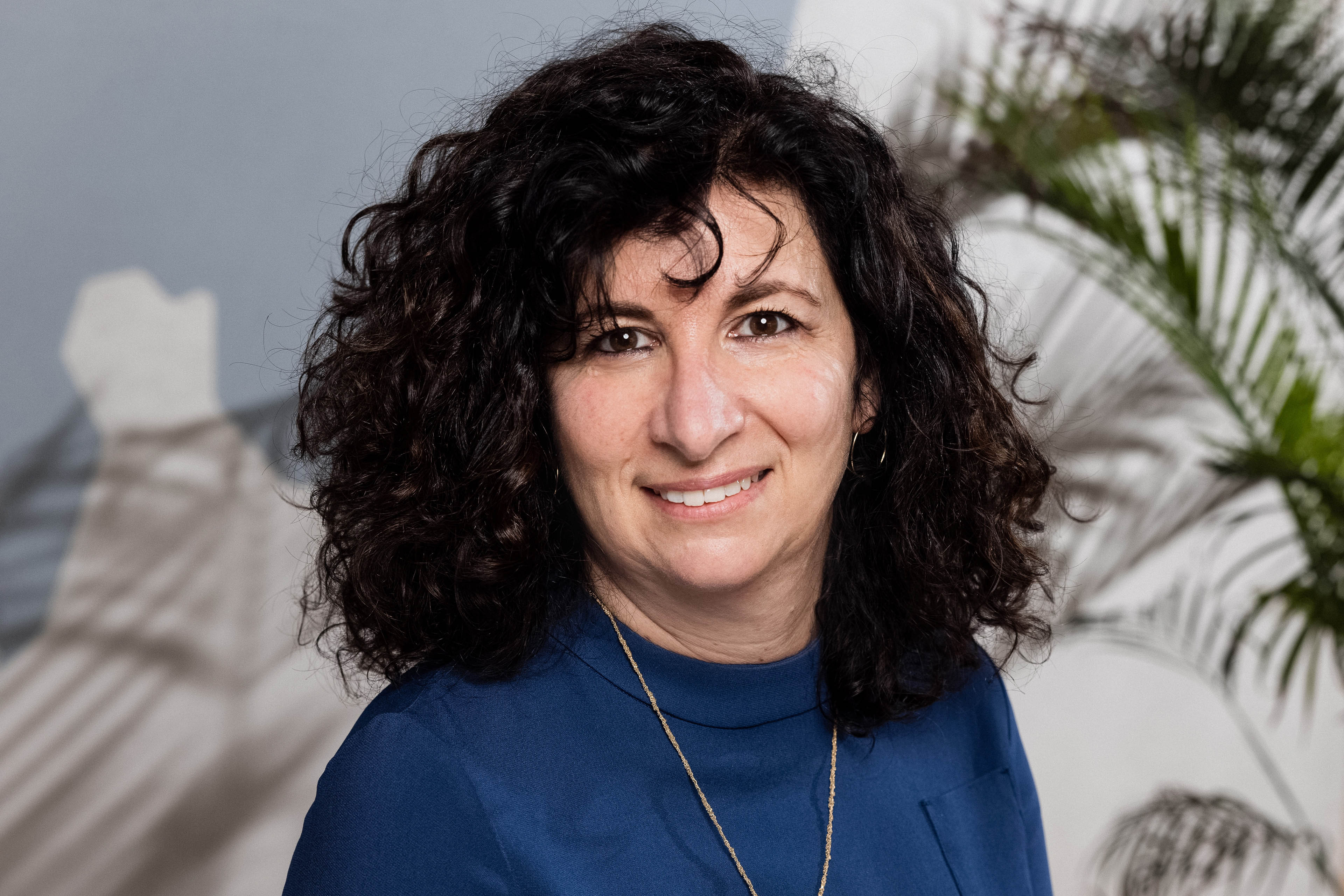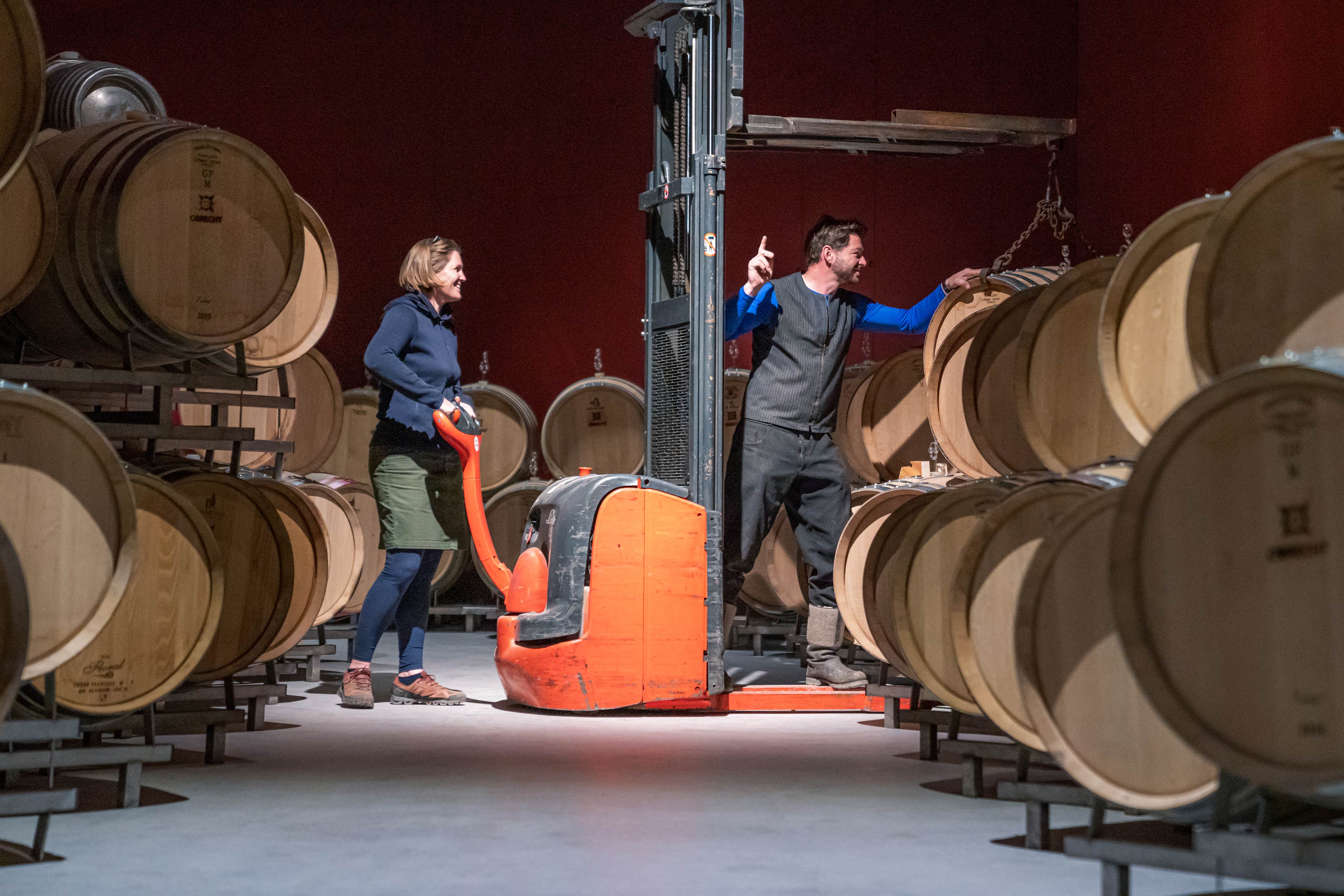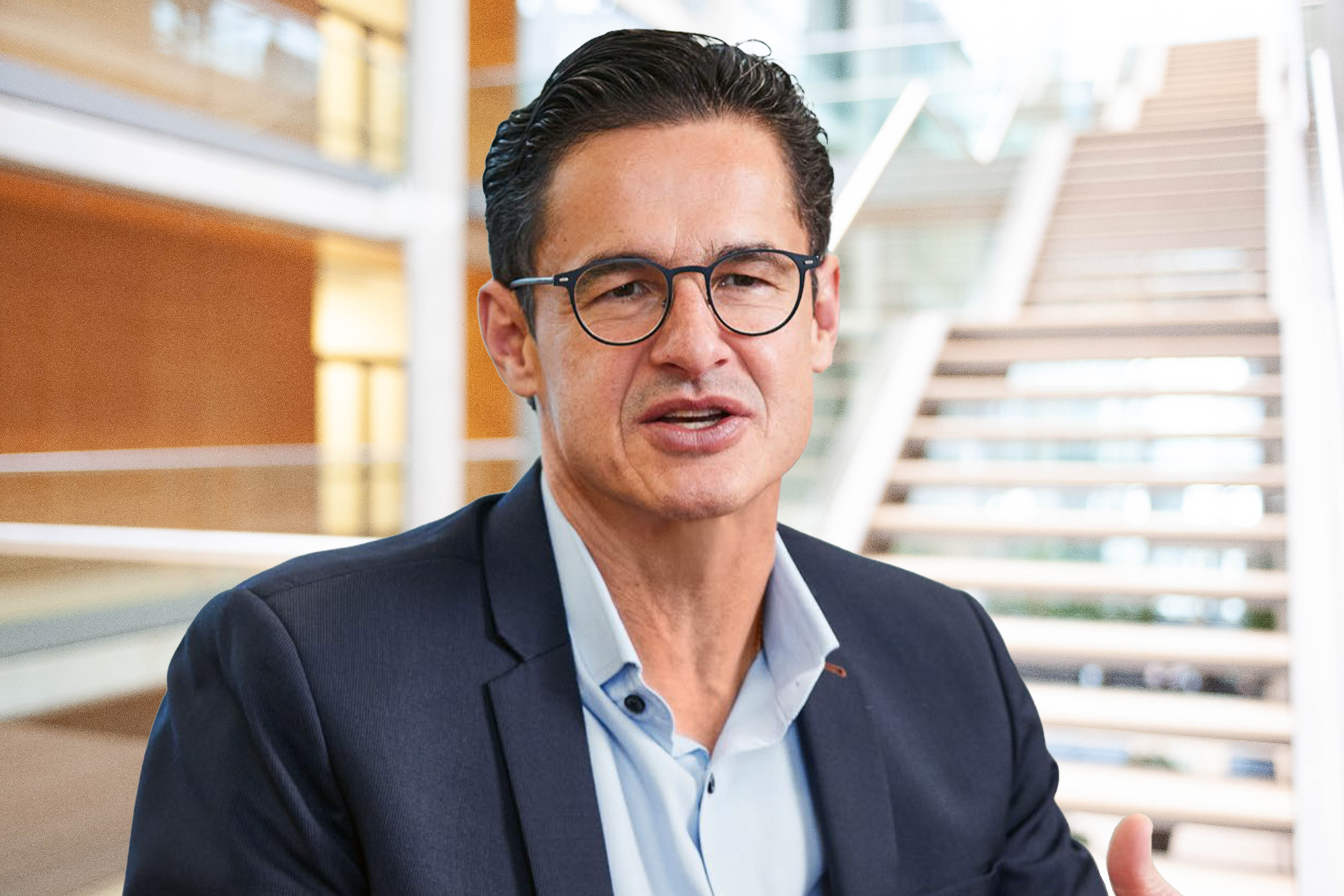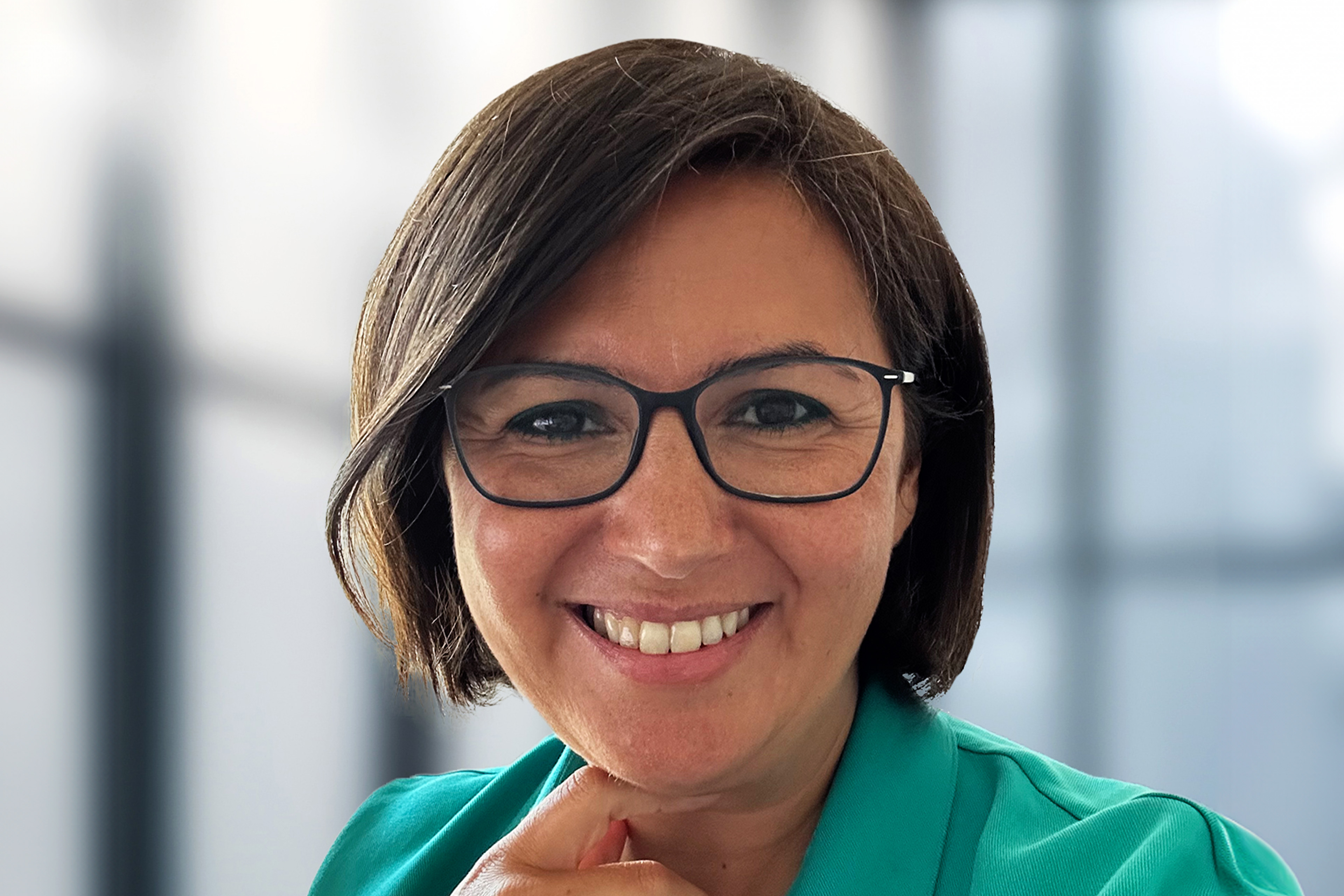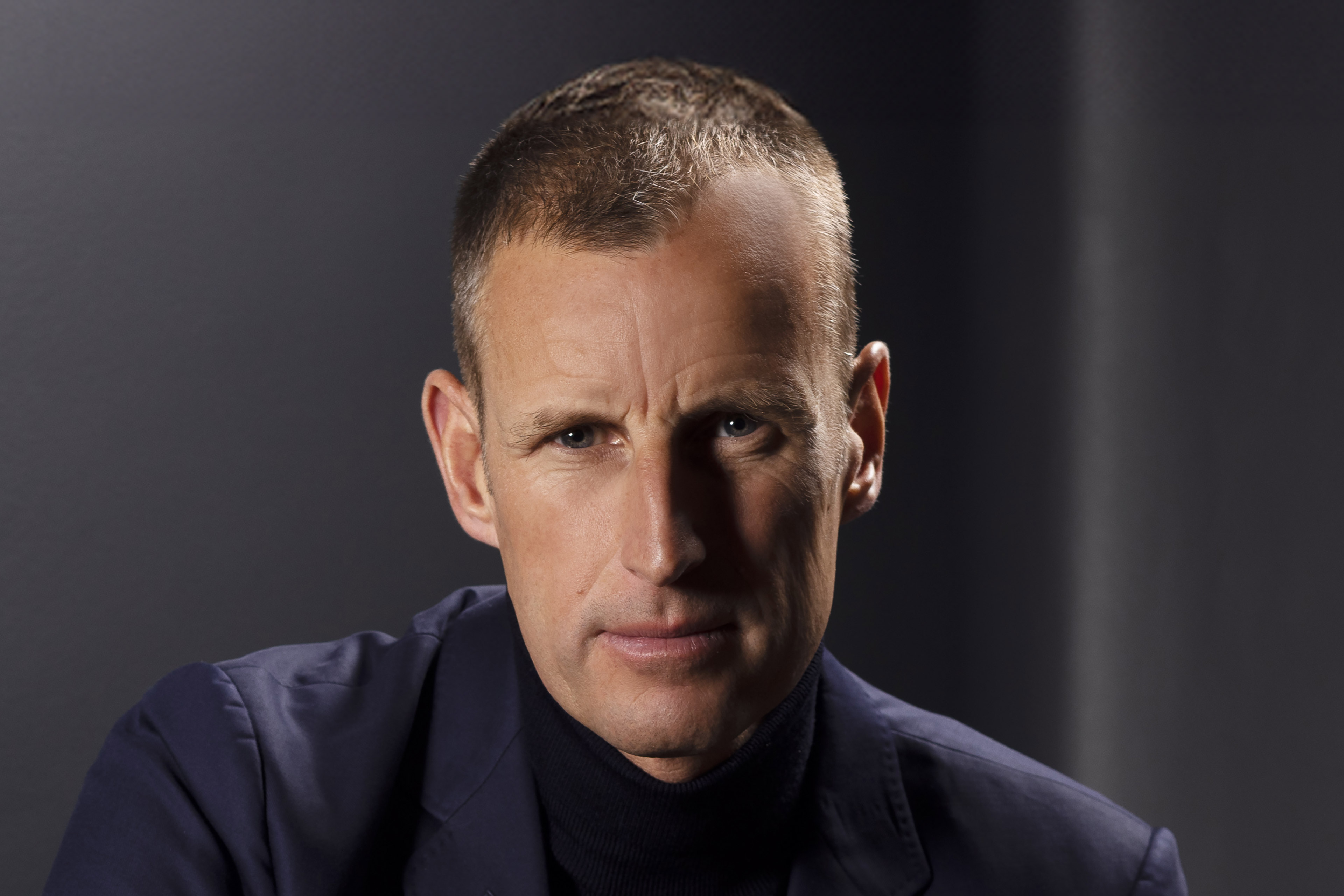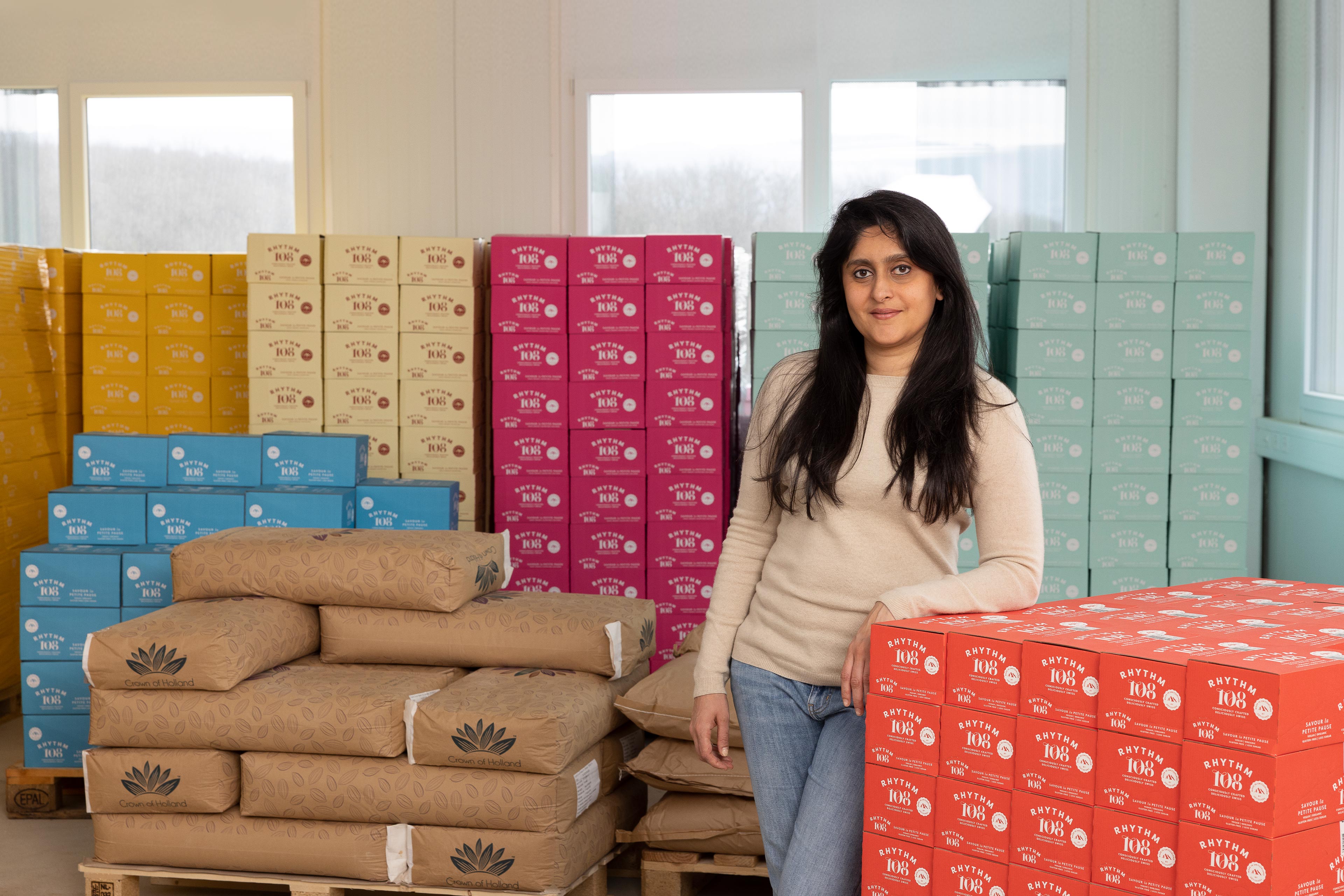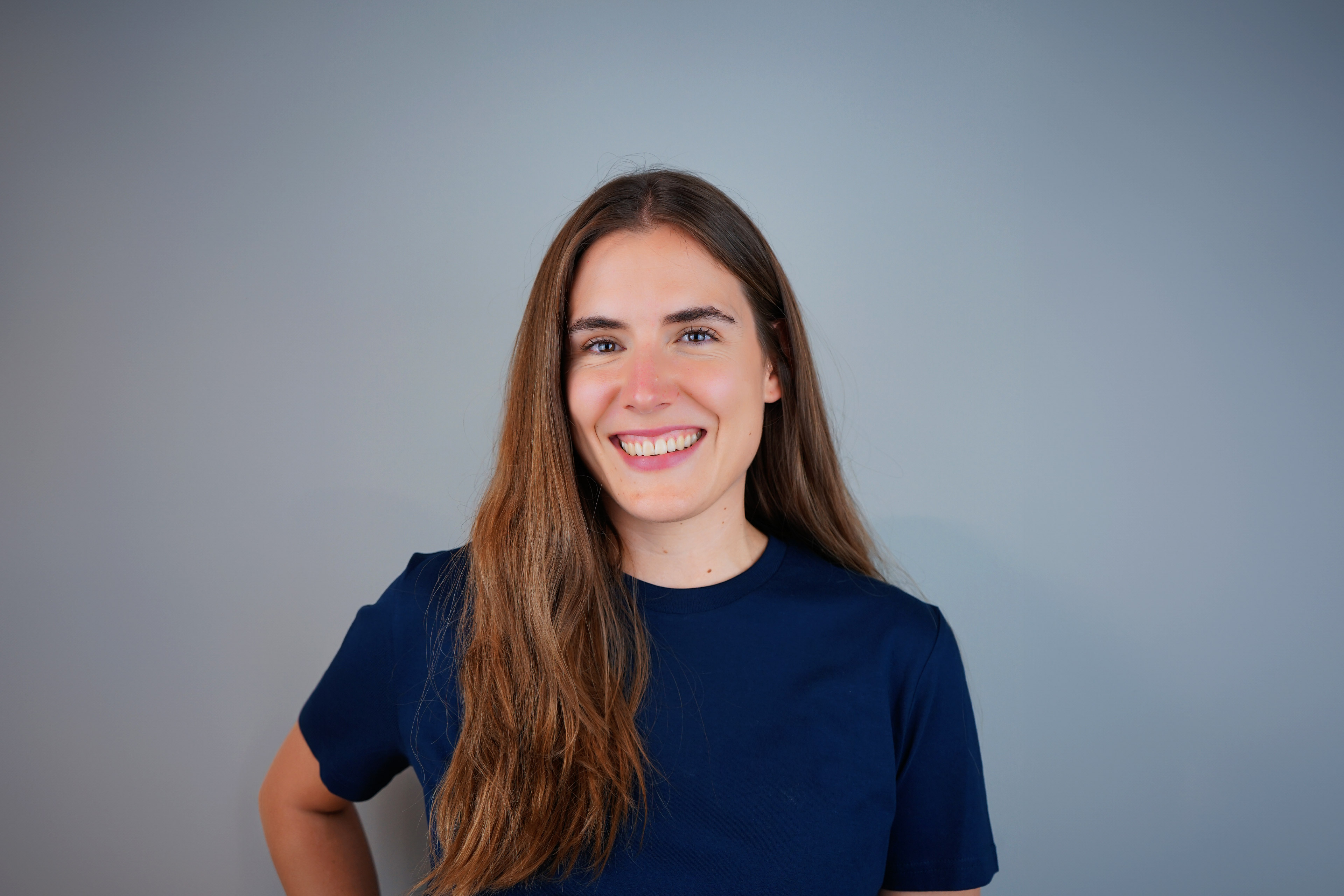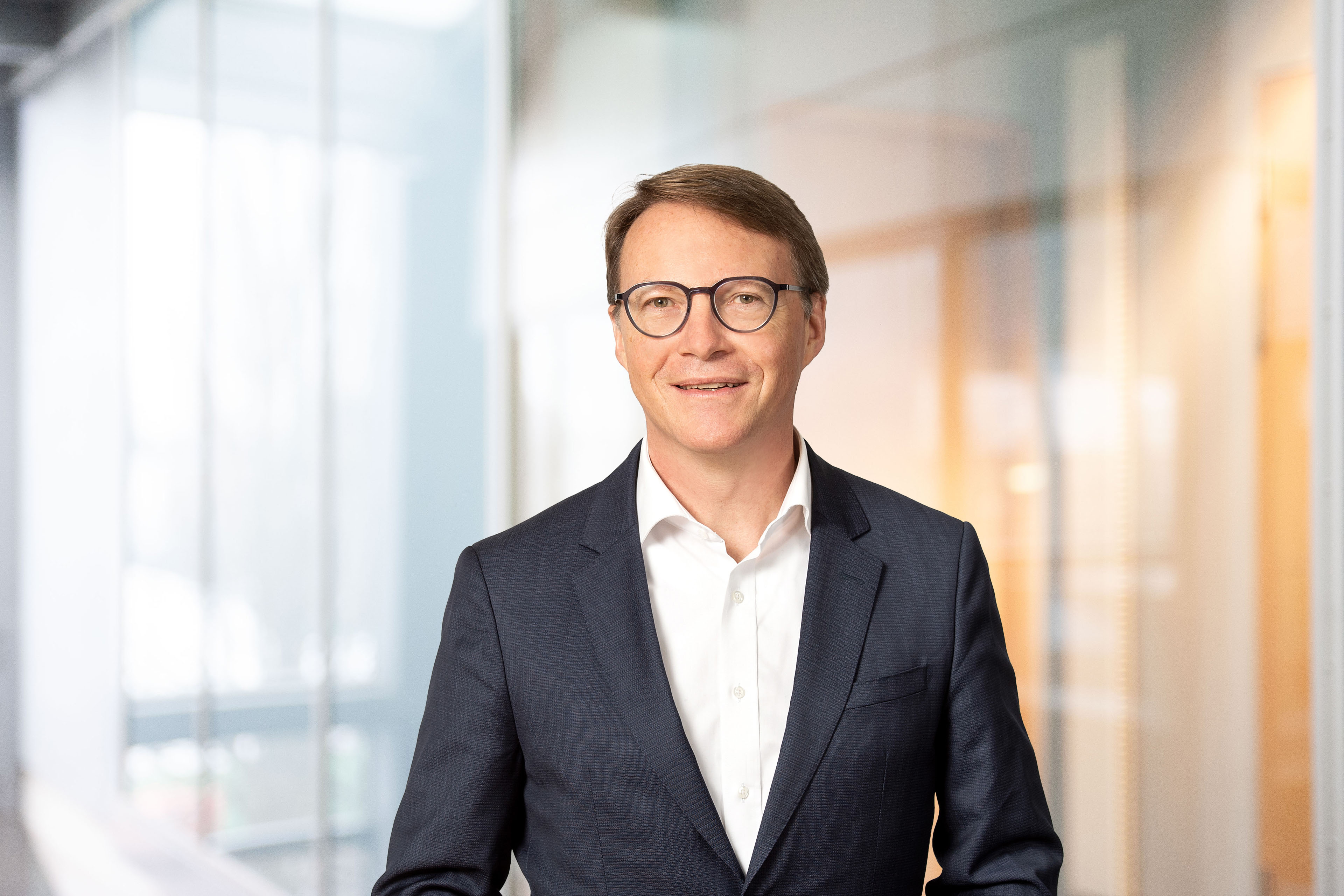EY refers to the global organization, and may refer to one or more, of the member firms of Ernst & Young Limited, each of which is a separate legal entity. Ernst & Young Limited is a Swiss company with registered seats in Switzerland providing services to clients in Switzerland.

“Trust your people, empower them – and they will reward you.
Bruno Patusi
Bruno Patusi has more than 20 years of experience in financial services. After launching his career at Credit Suisse in 1990, he joined Arthur Andersen in 2000, which became part of Ernst & Young (EY) in 2002. Today, Bruno is Financial Services Country Leader at EY Switzerland.
Bruno Patusi, Financial Services Country Leader, EY Switzerland, looks back on more than two decades in the financial services industry and discusses how the pandemic has accelerated change.
You have been working for quite a while in financial services. What do you value the most about being in this industry?
After school I chose to do a commercial apprenticeship at a bank. Banking quickly felt like it was my destiny, and I don’t regret this decision. Already back then I enjoyed the unique combination of working with numbers, people and clients. Today, this is something that I value even more.
What do you value the most at EY?
I joined Arthur Andersen at an exciting time. It was towards the end of the dotcom bubble, so I was able to gain cross-industry experience in both the old and new economy. My passion was banking, though, and Andersen didn’t have a dedicated financial services organization at the time.
To be honest, when the merger with EY was announced, it wasn’t love at first sight. EY was widely known as a leading audit firm with focus on domestic clients, while Andersen was mainly internationally oriented with an Anglo-Saxon culture. It took a bit of time to adapt, but then I realized that working for a leading financial services firm such as EY would be a great opportunity for me. I also said to myself that I should not judge something before I really got the chance to experience it.
In the meantime, I’ve served some of the best brands in financial services. I’m a football addict, and I like to compare what we do at EY with football. We want to see our clients playing at the top level of their game, in the Champions League. That’s why we are here, to help them transform and stay successful. Like in sports, for us this means that we have to train hard, remain agile and adapt to changing situations – time and time again, together with our clients.
Speaking of being agile: you also had to adapt to working from home. What does a typical weekday look like for you?
The pandemic has brought a lot of changes to my daily routine. Now, my day often starts with a family breakfast. This new everyday life with my family is one of the few positive effects of the coronavirus.
I start work from home at around 8:00, usually with a virtual meeting. I try to divide my working time evenly between my main priorities: clients, talents and my leadership role. It inspires and motivates me every day to be in direct contact with the different stakeholders. What I value a lot is that every day is different.
As a responsible employer, as a firm with carbon net-zero targets by 2025, it’s no longer acceptable to travel the world every day.
Another thing that has changed for me is travel. As a responsible employer, as a firm with carbon net-zero targets by 2025, it’s no longer acceptable to travel the world every day. We have seen and proven that we can do business remotely. Traveling for one meeting or an entire day is not a good use of time and it’s not good for our planet. This is something I can and will influence and I also want to lead by example for others.
You mentioned the pros of working remotely as well as wanting to be a role model in order to do something good for the planet. In this regard, what are the next developments at EY?
With businesses opening up and restrictions easing, we’ll see our people gradually returning to our offices. This will be a new situation for us. The future of work is now fundamentally different. In my twenty years at EY, I used to be either in the EY office or visiting clients five days a week. That’s not what the future top talents want. In our People Pulse survey, EY’s people told us that they would value a hybrid future of work. As an agile and learning organization, I and other leaders at EY are excited to explore this new working model.
To come back to financial services: how has the business changed over the years since you first started in this industry?
There have been a couple of main milestones during my time in financial services: the financial crisis, the introduction of negative interest rates, and now the pandemic. Let me share a personal story that illustrates the shift as I see it. I wrote my bachelor thesis on the topic of “bancassurance”, exploring the pros and cons of combining banking and insurance under one roof. The respective business cases were not successful at the time.
The combination of technology and innovation is accelerating transformation and enabling new delivery models.
Now, twenty years later, the topic is back on the agenda. Today, bancassurance is delivered through an ecosystem, but there are two key factors that have also changed. The first is technology, which has evolved rapidly and is the key enabler in helping businesses work together more seamlessly and without the need for mergers and integration. The second is innovation. The pace of innovation has completely changed, thanks, not least, to the many great start-ups in financial services. Twenty years ago, there was a fundamental belief that customers want a one-stop-shop to cover all financial needs holistically. This concept is still true, but the combination of technology and innovation is accelerating transformation and enabling new delivery models through platforms and ecosystems.
What about Environmental Social Governance (ESG) in financial services?
ESG is no longer a trend, it’s here to stay. The uncertainty of the past 18 months has significantly impacted end clients’ beliefs and world views. That goes beyond just a growing appetite for faster, better and more integrated digital tools. People care much more about health and wellbeing for themselves, their family and community. They expect that to be reflected in the financial sector’s value proposition.
The next generation of investors cares about the world, about society and about what’s going on around them. They add more weight to purpose, but also believe that financial returns and doing good with wealth can come together. Over the next five years, I think we’ll see ESG accelerate even more. This also applies in the workforce, by the way. People want to work for employers whose values align with their own.
Don’t forget to smile and laugh, even behind the mask.
Finally, what are your three recommendations based on what you’ve learned from this crisis?
If I could pick three key takeaways they would be:
- Don’t think you have to control everything. Trust your people, empower them – and they will reward you.
- Step outside your comfort zone – it forces you to ask more and better questions.
- Take care of yourself and your wellbeing. Do sport, enjoy quality time with your family and friends, and don’t forget to smile and laugh, even behind the mask.
.
Featured articles and interviews
Sebastian Tobler, Co-founder and CEO of GBY SA
Sebastian Tobler is co-founder and CEO of GBY SA, which has developed a new approach for the rehabilitation of people with reduced mobility. An automotive engineer by training and trade, Sebastian Tobler’s life took a new direction when a bike accident left him paralysed. Alongside his entrepreneurial activities, he heads the SCI-Mobility Lab as Professor at the Bern University of Applied Sciences.
Originally from Naples where she grew up and studied physics, Luciana Vaccaro moved to Switzerland in 1996 to complete a PhD in microengineering at EPFL. She held various positions in research and education at the universities of Neuchâtel and Lausanne before heading the Grant Office at EPFL. In 2013 she took the reins of HES-SO as rector. Last October, Luciana Vaccaro was elected president of the umbrella organization swissuniversities and started in her new position on 1 February.
Francisca Obrecht, Weingut Obrecht
Peter Rupp grew up in Sargans, Switzerland, around 20km south of the Hilti headquarters in Liechtenstein. He studied Economics in St. Gallen, then took a post-graduate degree in Engineering in Winterthur.
Peter Rupp grew up in Sargans, Switzerland, around 20km south of the Hilti headquarters in Liechtenstein. He studied Economics in St. Gallen, then took a post-graduate degree in Engineering in Winterthur.
Serra Bicak is Senior Vice President Reckitt Africa Middle East at Reckitt Hygiene. She has lived and worked in eight different countries for various roles during her career in fast-moving consumer goods. Serra Bicak is passionate about diversity, equity and inclusion (DE&I) and leads Reckitt Hygiene’s gender balance program.
Patrick Pruniaux, Chairman & CEO of Sowind Group
Patrick Pruniaux has a background in business administration and began his career in the watch industry at TAG Heuer. Always fascinated by innovation, he joined Apple in 2014 and oversaw the launch of the Apple Watch. Following a move to Kering in 2017, he managed the Ulysse Nardin and Girard-Perregaux watch brands. In 2022, Patrick Pruniaux spearheaded the historic management buyout and now serves as CEO of these two brands within Sowind Group.
Siddhi Mehta, founder and CEO of Rhythm 108, talked to us about sustainability, craftmanship – and how her company combines heritage and innovation to take the Swiss chocolate tradition into the future.
Judith Häberli, CGO and co-founder of Urban Connect as well as EY Entrepreneur Of The Year™ 2023 Switzerland winner in the category "Emerging Entrepreneur", shares her motivation for starting a corporate mobility platform and explains why real change only happens when companies work together.
Thomas Fürer has served ABB for 22 years, including 14 years in his current role as Group Head of Tax. A Certified Swiss Fiduciary Expert and Certified Swiss Tax Expert, he takes a keen interest in technology and digitalization in the tax function and beyond.



